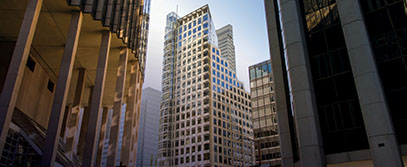Hilco Global Asset Smarter Perspective Podcast Series: Hotels

Steve Katz and Jeff Azuse, Senior Vice President of Hilco Real Estate, discuss the impacts to the hospitality market from the current global pandemic, and the various factors that are contributing to continued struggles and planning complexities for hotel owners and operators.
Steve Katz 0:08
Hello again and welcome to the Hilco Global Smarter Perspective Podcast Series. I’m your host Steve Katz. Today we’re speaking with Jeff Azuse, Senior Vice President of Hilco Real Estate, about the impacts to the hospitality market from the current global pandemic, and the various factors that are contributing to continued struggles and planning complexities for hotel owners and operators. Just a little quick background, Hilco Real Estate is a unit of Hilco Global specializing in the sale and auction of hotels and hotel notes throughout North America and one of the industry’s most respected and accomplished authorities on real estate and note dispositions. Jeff, welcome to the podcast.
Jeff Azuse 0:43
Hi Steve. It’s great to be here. Appreciate it.
Steve Katz 0:45
Yeah. Glad you could join us. So in preparing for our discussion today Jeff, I did a little research and I’m sure you know this, but there are over 54,000 hotel properties in the U.S. but until COVID-19 served more than 1 billion guests annually while supporting and I was really surprised by this number 1 in 25 American jobs. Pretty incredible. So the pandemic has clearly changed these numbers significantly right? And to get us started, I thought maybe you could provide some perspective on the immediate challenges that the rapid downward shift from the high levels of occupancy to the now unprecedented levels of vacancies, is presenting to operators.
Jeff Azuse 1:23
The COVID-19 pandemic and the impact it’s had on the hospitality industry is just something that no one could ever be prepared for. The immediate just stop of people traveling the lockdown of essentially the country put everybody into a position that they were scrambling just to figure out what to do on many levels. And it’s especially in the hotel industry, you know, that obviously relies heavily on people leaving their homes and traveling around the country. So this is certainly a time that’s never been seen before drastically impacts operator’s ability to run their business in an efficient manner. From room pricing, many operators have algorithms that spit out, you know what the room pricing is going to be for a given day based on occupancy levels or occupancy levels in the city they’re in or the areas they’re in all of that thrown out the window, because with this dramatic drop, and that has caused operators to really kind of look at things in a much different way and figure out how to get through it. Obviously, early on with the significant drop to almost zero occupancy in some places down to 10 or 20% occupancy and in other areas. It’s really just, you know, what can we do to survive, you know, what pricing can we use just to get people here for now and then we’ll figure it out, as occupancies start to increase, we’ll figure it out down the road. Early on in the pandemic, it was really a survival mode. Now it’s, they’re looking at things, you know, as things start to slowly get back future planning or trying to project, you know, when occupancy levels might start to get back to some level of profitability, and but a lot of those are unknown questions, and there’s still a lot of struggle ahead. So it’s an interesting time. You know, I don’t think anyone has the answers but, you know, everyone that I’ve spoken to in the hotel industry, whether it’s, you know, operators and owners, they’ve been doing their best to fight through it and try to project when things will start to slowly get better.
Steve Katz 3:26
Alright, thanks for that, Jeff. Those are bound to be difficult and challenging adaptations for owners and operators for sure. Alright, so next question. I know one of the key measures for the industry is revenue per available room or RevPAR, what is Hilco Real Estate right now observing and expecting to see moving ahead in terms of RevPAR rebounds? And how does that correlate to the potential for bringing furloughed employees back or hiring new employees?
Jeff Azuse 3:50
You know, RevPAR is kind of the hotel industry’s kind of staple rating of how they’re doing, or how much money they’re making on a per room basis and it’s used across the industry. Obviously, it ties very closely into occupancy; if the rooms aren’t being occupied, then there’s no RevPAR for that room. I’ve been reading that the occupancy levels are going to be the lowest they’ve ever been in 2020 ever, going back 10-20 years but ever, and how that relates to RevPAR, you know, we’re what we’re seeing is at least a 50% decline in RevPAR for 2020, which has a huge impact on a hotel’s ability to operate efficiently. And as occupancy goes up, RevPAR should go up as well, although it’s going to depend heavily on what the hotels are able to charge to get people back in the hotel. They’re going to be lowering room rates to attract people to come back a reason to increase occupancy, that won’t help RevPAR. And RevPAR also ties heavily into what a hotel is and how they’re going to be staffing their property, how many housekeeping staff they need, how many registration people they need, all that ties heavily into RevPAR. And the unknown as I mentioned previously, kind of the unknowns of when occupancy is going to get back and how that RevPAR is going to need to be adjusted to attract people to come back. It’s heavily tied into the staffing of a particular property. Obviously, the staffing of hotels for the last six months have been they basically furloughed pretty much 89% of their staffing. Now it’s starting to pick back up but it certainly was a huge, huge drop when it comes to staffing. And, there’s still a lot of unknowns that going forward as to when that will increase and when they’ll be able to bring back these employees, and when they bring back those employees, how many can they bring back? What can they afford to pay them based on RevPAR? So all those things are going to be watched closely over the next three, six months to a year as we start to slowly come out of a deep downturn, but it’s going to be a slow recovery.
Steve Katz 6:11
Yeah, that’s for sure. Well, let’s hope for lots of reasons that we see employees returning soon. Okay, here’s something else I wanted to talk about and the focus is that I’ve heard the team talk before about the direct correlation between airline travel and occupancy. And I think I’ve read recently that, as much as I want to say 75% of airline profits are historically derived from business travel. I think that our listeners would be really interested in how a company’s actions relative to travel budgets, along with developments, like the rapid shift to video conferencing, are impacting hotel properties overall. And more specifically, which hotel types you think are likely to be most at risk on what you guys are seeing going on right now?
Jeff Azuse 6:54
Yeah, that’s actually that’s a really good question. Really good points. You know, obviously, business travel is extremely vital to the hospitality industry. I’m a business traveler, and I haven’t traveled since March. And when you look at how that kind of snowballs down the path of number of business travelers that have not been traveling; from not flying, to not staying hotels, not going to restaurants, it quickly becomes a major issue in the hospitality industry. If we just take me as an example, and what I was spending at hotels and restaurants and airfare leading up to March of 2020 and just stopping that just putting a complete freeze on it. It’s pretty crazy when you think about how that can be taken over millions of people like myself having to stop and then when are we going to be starting to travel again? When’s it going to pick up? I know, there are some industries where travel is more required, and it’s slowly picking up. But there’s many, many, many business travelers who are still not traveling. I’m one of those. And it’s going to take years for the business travel to start to get back to a level that it was before. And obviously how that impacts the hospitality industry is significant. If you look at the major cities where a lot of business travelers go New York, Chicago, LA, Miami, Dallas, and even if you look at Las Vegas, being a major conference center, all those areas, all those cities are going to be impacted for a long time. It’s almost impossible to determine when it might come back and when those areas will see a pickup again. I know some of them are starting to see a little bit of it but nothing significant enough to say that, “Yeah, we’re on a clear path to recovery.” And a little scary when you actually think about the impact on the hospitality industry. It’s going to be a long, long road and in business travel has a lot to do with the recovery. Especially in the major cities where a lot of business travel happens.
Steve Katz 8:56
Yeah, oh, my gosh, you know, I spoke with someone just the other day who’s the head of sales at a SAS company and he was saying that they’ve already saved over $2 million in travel related related expenses this year. So you know, even when things do recover, you have to wonder whether companies will be pulling back on travel related expenditures and how that’s likely to impact the industry. Serious stuff.
Jeff Azuse 9:16
Yeah, as you just said, Sorry, Steve, I, you know, when you look at even my team, within my group, the amount of expenses that are not travel expenses that are not being used. And then, as I looked as we start to come out of it, and look back and try to evaluate what type of business travel, you know, was required, and how much of it is still needed as we look at our business plan going into 2021. How is our business plan and financial projections going to be impacted by the decrease in business travel?
Steve Katz 9:50
Yeah, I think every company has to be asking themselves pretty much the same question right now. So it will be interesting to see where it falls out. All right, well, question before we wrap it up, but for sure it’s an important one. What can you tell the listeners today about what your team is seeing in terms of both asset values during this period and also the lender mindset that accompanies that? And then, importantly, given the outlook for the market, should those with exposure here be looking to market their hospitality assets sooner rather than later?
Jeff Azuse 10:20
Yeah, that’s another another good question and a difficult one to answer based on the on the unknowns that are going on right now and how long is this recovery going to take and everyone is anxiously awaiting to see how the election comes out, and vaccine and all those things come into play, and certainly come into play when you’re looking at the value of a hospitality hotel asset. Certainly, there’s no doubt that values are down. There’s no other way to look at it with the occupancy down and at historic levels, RevPAR down at historic levels, values are down, they’ve been protected a little bit, because banks are being very lenient and a forbearance agreements, you know, banks have been very willing to work with their borrowers to delay payments, or push payments out or add the payments to the end of their loans, which certainly have propped up values in the short term. But ultimately, there are going to be properties that can’t recover, or that because of their decrease in value, they’re going to have a hard time refinancing in the future, or they’re going to have a hard time making their property profitable based on their their current debt service, which is, again, a little bit of an unknown right now. But there’s no doubt that it’s going to happen in the next six, eight months to a year. And then you take that and are those hotel owners, are they able to refinance? And, are the banks and lenders out there going to be looking to place loans in the hospitality industry? It’s going to be there’s gonna be a lot less lenders out there willing to make loans in the hospitality hotel industry based on everything that’s happened, or if they are willing to make loans, they’re going to be looking a lot more tightly at that loan, meaning they’re going to make sure the borrower is well qualified borrower and make sure the property is in good shape, make sure that it has the right flag on it. And they’re going to require that there’s more equity in the deal or more of a down payment by the borrower. Loan to value ratios are going to get greater. And all of that means that the owners of hotels are going to have to have more cash, if they want to get a loan or have more cash, if they want to buy a property, there’s going to be a lot of money needed to work on your property improvement plans called a PIP (property improvement plan) to keep your flag in place. All those things are going to make this industry in a recovery for a while into the foreseeable future. Right now, as I mentioned earlier, you know, because lenders are being flexible and more generous with their borrowers, and there’s less properties on the market, the values are being propped up a little bit, because the borrowers are able to continue to operate. They’re getting their loan or debt service payments deferred. So as that starts to shift, there’s going to certainly be more properties that may not recover, or are going to be put on the market to sell. So right now, I think if you had a property that was on the market prior to the pandemic, or if you have a property that you’re unsure is going to be able to recover, now, it’s probably as good a time to put it on the market and try to get it sold. There are a lot of buyers out there. There’s a lot of cash sitting on the sidelines looking to buy properties. And there’s not as much on the market. A year from now, there’s definitely going to be more properties on the market, there’s going to be certainly distress in the hospitality market. And right now, I think you can get a better deal by marketing selling your property now than by waiting a year or waiting this out to see you know, when are things going to recover? How long is it going to take? When our business travelers going to come back? It’s really an unknown, and right now is probably as good a time as any.
Steve Katz 14:05
Yeah, great insights about what’s needed both in terms of keeping those flags in place, like you said, and then also in terms of valuations. There are more of those distressed properties on the market. So thanks for that. And for those of you who joined us today, if you’re a hotel owner who had been considering selling prior to the pandemic, like Jeff mentioned, or believe that the need for a sale due to recent events may become a necessity in the coming months, you may well want to take the appropriate steps now towards getting those properties on the market. And based on what we heard here today, a good place to start would be to get in touch with Jeff and the Hilco Real Estate team. So with that Jeff’s email is JAzuse@hilcoglobal.com. That’s JAzuse@hilcoglobal.com. Jeff, thanks again for joining us.
Jeff Azuse 14:55
Thanks for having me. It was fun!
Steve Katz 14:57
Yeah, I’m glad. I’m glad you enjoyed it. I’m sure listeners as well. And listeners, we hope that today’s Hilco Global Smarter Perspective Podcast provided you with at least one key takeaway that you can put to good use in your business or share with a colleague or a client to help make them that much more successful moving forward. Until next time for Hilco Global, I’m Steve Katz.




